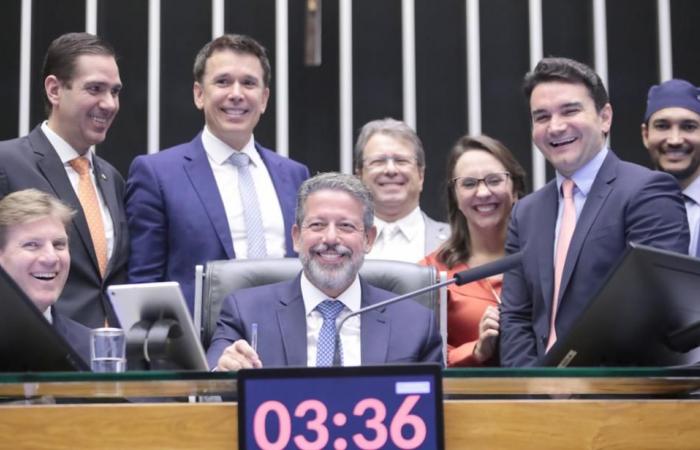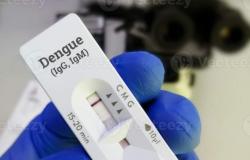The plenary of the Chamber of Deputies approved, last Tuesday (24), a bill (PL 1026/2024) that reformulates the Emergency Program for the Resumption of the Events Sector (Perse) − policy created during the Covid-19 pandemic to mitigate the effects of the health crisis on various activities linked to the sector.
The text, signed by deputies José Guimarães (PT-CE) and Odair Cunha (PT-MG), leaders of the government and the Workers’ Party (PT), respectively, in the legislative house, was sponsored by the Ministry of Finance, which since the last year he tried to limit the Executive Branch’s tax expenditures with the measure.
After a failed attempt to revoke the entire program and in the face of strong resistance from parliamentarians to the movement, the Palácio do Planalto decided to sit at the table and build a milder project, which still underwent modifications during its processing in the Chamber of Deputies. Despite the dehydration, the text is treated as a priority by the economic team in the search for balance in public accounts.
Masterclass
The Power of Turbo Fixed Income
Learn in practice how to increase your wealth with profitability, simplicity and security (and even win 2 InfoMoney gifts)
Perse reduces, for a period of 60 months (counting from 2021, when Law No. 14,148 was sanctioned), the rates of 4 taxes (PIS/Pasep, Cofins, CSLL and IRPJ) to a previously defined group of economic activities .
The version approved by the plenary last night, under the rapporteur of deputy Renata Abreu (Podemos), establishes a limit of R$ 15 billion for tax incentives within the Perse, from April 2024 to December 2026.
The text, which will still need to be analyzed by the Federal Senate, also reduces from 44 to 30 the list of services in the National Classification of Economic Activities (CNAE) eligible for the benefit (see the list at the end of the report) − the text originally sponsored by government limited the program to just 12.
Continues after advertising
Only legal entities belonging to the events sector that had as their main CNAE code or preponderant activity, on March 18, 2022, one of those mentioned by the project, will be entitled to the benefit. The text considers as preponderant the activity whose gross revenue resulting from its exercise has the highest absolute value, determined among the codes that make up the company’s total gross revenue.
In response to a demand from the Ministry of Finance, the approved project establishes that legal entities in the events sector that were inactive during the Covid-19 pandemic would benefit from the incentive. In this way, only companies that, in the calendar years 2017 to 2021, have not carried out any operational, non-operational, patrimonial or financial activity (including investment in the financial or capital market) are considered, in all of their CNAE codes.
Although the initial idea of the economic team was to prohibit access to the tax benefit to companies taxed on real profit (with annual revenue exceeding R$78 million) or arbitrated profit, the text allows this group to count on Perse’s incentive in 2024. In the following two years, they will be restricted to reducing PIS and Cofins (that is, paying full rates of CSLL and IRPJ from these years onwards).
To avoid double benefits due to tax rules in force before the program, these companies will have to request authorization from the Federal Revenue within 60 days after the regulation. In it, they must inform whether they intend to use the tax reduction or whether they intend to use accumulated tax losses, negative CSLL calculation basis and PIS/Cofins credit discounts in relation to goods and services used as input. The text grants a period of 30 days for the Tax Authorities to express its opinion in favor or against the qualification, under penalty of automatic qualification. In any case, it may be canceled if the legal entity no longer meets the requirements.
The approved text also establishes that the Federal Revenue Secretariat presents bimonthly reports monitoring tax expenditures within the scope of Perse, considering only qualified companies, and with disaggregation of values by CNAE.
The project also provides that the Perse tax benefit will be extinguished from the month following the month in which it is demonstrated by the Executive Branch, in a public hearing of the National Congress, that the accumulated fiscal cost has reached the fixed limit (of R$ 15 billion between April 2024 and December 2026).
The approved version is tougher than the one initially presented by the rapporteur, which only provided that the Executive Branch could send, in the second half of 2025, a bill to the National Congress proposing “proportional adjustment of rates or expansion of benefits, with the objective to adjust the fiscal cost in the following years”, if the established ceiling was exceeded.
As the provisional measure (MPV 1202/2023) in which the government attempted to revoke Perse generated tax effects for beneficiary companies, the substitute provides that the contribution to PIS/Pasep, Cofins and CSLL eventually collected as a result, having as calculation basis the results and revenues obtained directly from the activities covered, may be offset against own debts, due or falling due, relating to taxes administered by the Federal Revenue Service or reimbursed in kind upon request. This, in practice, tends to negatively affect revenue results already determined by the federal government.
According to the text, taxpayers who applied the Perse exemptions with irregularities in the Register of Tourist Service Providers (Cadastur) or without having the right due to problems with the CNAE will be able to adhere to self-regularization within 90 days after the regulation of the law, without incidence of late payment and ex officio fines.
With this mechanism, companies can also use the tax losses and the negative basis of the CSLL to pay off 50% of the debt in cash, and can even use losses from subsidiaries or affiliates. What’s left can be paid in 48 monthly installments, adjusted by the Selic rate plus 1% in the month of payment for each one.
Regarding the transfer of ownership, the project provides that it will imply joint and unlimited liability on the part of those who sell and those who purchase the shares or shares, as well as the administrator, for taxes not collected due to Perse in the event of misuse of the benefit for activities not covered by the program. This will apply to legal entities that are already beneficiaries or that intend to take advantage of the exemption.
See the list of activities covered by the new Perse:
- Hotels (5510-8/01);
- Aparthotels (5510-8/02);
- Food services for events and receptions – buffet (5620-1/02);
- Film exhibition activities (5914-6/00);
- Creation of stands for fairs and exhibitions (7319-0/01);
- Photography production activities, except aerial and underwater (7420-0/01);
- Filming of parties and events (7420-0/04);
- Agency of professionals for sporting, cultural and artistic activities (7490-1/05);
- Rental of recreational and sports equipment (7721-7/00);
- Rental of stages, covers and other structures for temporary use, except scaffolding (7739-0/03);
- Reservation services and other tourism services not previously specified (7990-2/00);
- Organization of fairs, congresses, exhibitions and parties (8230-0/01);
- Party and event houses (8230-0/02);
- Theatrical production (9001-9/01);
- Music production (9001-9/02);
- Production of dance shows (9001-9/03);
- Production of circus, puppet and similar shows (9001-9/04);
- Sound and lighting activities (9001-9/06);
- Performing arts, shows and complementary activities not previously specified (9001-9/99);
- Management of spaces for performing arts, shows and other artistic activities (9003-5/00);
- Production and promotion of sporting events (9319-1/01);
- Nightclubs, dance clubs, dance halls and similar (9329-8/01);
- Restaurants and similar (5611-2/01);
- Bars and other establishments specializing in serving drinks, without entertainment (5611-2/04);
- Bars and other establishments specializing in serving drinks, with entertainment (5611-2/05);
- Travel agencies (7911-2/00);
- Tour operators (7912-1/00);
- Activities of botanical gardens, zoos, national parks, ecological reserves and environmental protection areas (9103-1/00);
- Amusement parks and theme parks (9321-2/00);
- Activities of associative organizations linked to culture and art (9493-6/00).
(with Agência Câmara)
Receive in your email first thing in the morning the news that will affect the markets, your investments and your pocket during the day






